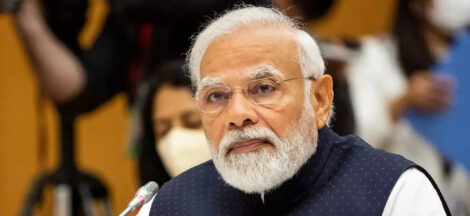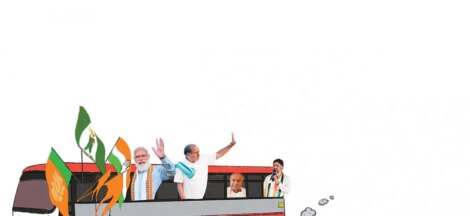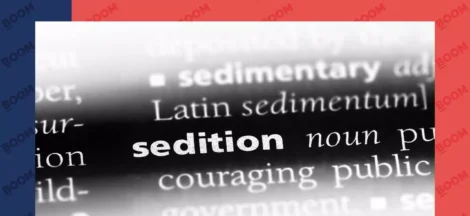By
Conn Hallinan
Keeping track of the Trump
administration’s foreign policy is like trying to track a cat on a hot tin
roof: We’re pulling out of Syria (not right away). We’re leaving Afghanistan
(sometime in the future). Mexico is going to pay for a wall (no, it isn’t).
Saudi Arabia, Russia, the European Union, China, Turkey, North Korea—one day,
friends, another day, foes. Even with a scorecard, it’s hard to tell who’s on
first.
Except for Iran, where a policy of
studied hostility has been consistent from the beginning. Late last year,
National Security Advisor John Bolton pressed the Pentagon to produce options
for attacking Iran, and he has long advocated for military strikes and regime
change in Teheran. And now, because of a recent internal policy review on the
effect of U.S. sanctions, Washington may be is drifting closer to war.
According to “On Thin Ice,” a report
by the International Crisis Group (ICG), the Trump administration has concluded
that its “maximum pressure” campaign of sanctions has largely failed to meet
any of the White House’s “goals” of forcing Iran to re-negotiate the 2015
nuclear agreement or alter its policies in the Middle East. While the sanctions
have damaged Iran’s economy, the Iranians have proved to be far nimbler in
dodging them than Washington allowed for. And because the sanctions were
unilaterally imposed, there are countries willing to look for ways to avoid
them.
“If you look at the range of ultimate
objectives” of the administration, from encouraging “protests that pose an
existential threat to the system, to change of behavior, to coming back to the
negotiating table, none of that is happening,” Ali Vaez of the ICG’s Iran
Project, told Laura Rozen of Al-Monitor.
That should hardly come as a shock.
Sanctions rarely achieve their goals and virtually never when they are imposed
by one country, even one as powerful as the U.S. More than 50 years of
sanctions aimed at Cuba failed to bring about regime change, and those
currently aimed at Russia have had little effect beyond increasing tensions in
Europe.
This time around, the U.S. is pretty
much alone. While the Trump administration is preparing to withdraw from the
2015 nuclear agreement—the Joint Comprehensive Plan of Action—the European
Union (EU) is lobbying Iran to stay in the pact. Russia, China, Turkey and
India have also made it clear that they will not abide by the U.S. trade
sanctions, and the EU is setting up a plan to avoid using dollars.
But the failure of the White House’s
sanctions creates its own dangers because this is not an American
administration that easily accepts defeat. On top of that, there is a window of
opportunity for striking Iran that will close in a year, making an attack more
complicated.
The nuclear agreement imposed an arms
embargo on Iran, but if Teheran stays in the agreement, that embargo will lift
in 2020, allowing the Iranians to buy weapons on the international market.
Beefing up Iran’s arms arsenal would not do much to dissuade the U.S., but it
might give pause to Saudi Arabia or the United Arab Emirates (UAE), two of
Teheran’s most implacable enemies.
It is not clear who would be part of a
coalition attack on Iran. Saudi Arabia and the UAE would almost certainly be
involved, but that pair hardly has the Iranians quaking in their boots. The
rag-tag Houthi army has fought the two Gulf monarchies to a standstill in Yemen,
in spite of not having any anti-aircraft to challenge the Saudi air war.
Iran is a different matter. Its
Russian built S-300 anti-aircraft system might not discomfort the U.S. and the
Israelis, but Saudi and UAE pilots could be at serious risk. Once the embargo
is lifted, Iran could augment its S-300 with planes and other anti-aircraft
systems that might make an air war like the one the Gulf monarchs are waging in
Yemen very expensive.
Of course, if the U.S. and/or Israel
join in, Iran will be hard pressed. But as belligerent as Bolton and the
Israeli government are toward Iran, would they initiate or join a war?
Such a war would be unpopular in the
U.S. Some 63 percent of Americans oppose withdrawing from the nuclear agreement
and by a margin of more than two to one, oppose a war with Iran. While 53
percent oppose such a war—37 percent strongly so—only 23 percent would support
a war with Iran. And, of those, only 9 percent strongly support such a war.
The year 2020 is also the next round
of U.S. elections where control of the Senate and the White House will be in
play. While wars tend to rally people to the flag, the polls suggest a war with
Iran is not likely to do that. The U.S. would be virtually alone
internationally, and Saudi Arabia is hardly on the list of most American’s
favorite allies.
And it is not even certain that Israel
would join in, although Prime Minister Benjamin Netanyahu calls Iran an
“existential threat.” Polls show that the Israeli public is hardly enthusiastic
about a war with Iran, particularly if the U.S. is not involved.
The Israeli military is more than
willing to take on Iranian forces in Syria, but a long-distance air war would
get complicated. Iraq and Lebanon would try to block Israel from using their
airspace to attack Iran, as would Turkey. The first two countries might not be
able to do much to stop the Israelis, but flying over a hostile country is
always tricky, particularly if you have to do it for an extended period of
time. And anyone who thinks the Iranians are going to toss in the towel is
delusional.
Of course Israel has other ways to
strike Iran, including cruise missiles deployed on submarines and surface
craft. But you can’t win a war with cruise missiles, you just blow a lot of
things up.
There are deep fissures among the Gulf
monarchs. Qatar has already said that it will have nothing to do with an attack
on Iran, and Oman is neutral. Kuwait has signed a military cooperation
agreement with Turkey because the former is more worried about Saudi Arabia than
it is Iran, and with good reason.
A meeting last September of Saudi
Crown Prince Mohammed bin Salman and Emir Sabah Al-Sabah of Kuwait to discuss
problems between the two countries apparently went badly. The two countries are
in a dispute over who should exploit their common oil fields at Khafji and
Wafra, and the Saudis unilaterally stopped production. The Kuwaitis say they
lost $18 billion revenues and want compensation.
So is U.S. National Security Advisor
Bolton just blowing smoke when he talks about regime change in Iran? Possibly,
but it is a good idea to take the neo-conservatives at their word. The U.S.
will try to get Iran to withdraw from the nuclear pact by aggressively
tightening the sanctions. If Teheran takes the bait, Washington will claim the
legal right to attack Iran.
Bolton and the people around him
engineered the catastrophes in Afghanistan and Iraq (the Obama administration
gets the blame for Libya and Yemen), and knocking out Iran has been their long
time goal. If they pull it off, the U.S. will ignite yet another forever war.
(IPA Service)
Courtesy:
People’s World
The post Trump Is Doing Flip-Flop On Iran appeared first on Newspack by India Press Agency.


